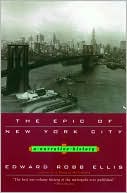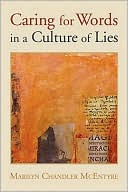Five Arguments Against Slavery
Harriet Beecher Stowe's Uncle Tom's Cabin
[Analytical Essay written for a college US History class]
Harriet Beecher Stowe’s Uncle Tom’s Cabin presented the thesis that Southern chattel slavery was immoral. To establish this assertion, Stowe incorporated the five major abolitionist arguments into the framework of her novel in order to reveal the impossibility of political compromise over something intrinsically evil.
The first major argument of the abolitionists was that slavery was anti-Christian. Genesis 1:27 stated that man was created in the image of God. Indeed, all of the heroes of Stowe’s tale are portrayed as devout Christians. Thus, Stowe essentially argued that the only way to be a good Christian was to be anti-slavery. Yet she went even further than that. Many abolitionists of her day would not have argued for the racial equality of the African, but Stowe did. In the character of Miss Ophelia, she developed a typical Northern woman of the 1850’s. Miss Ophelia considered herself a Christian, yet admitted she had a prejudice against the slaves and couldn’t bear to have them touch her. The young child Eva had no prejudice at all, however, which forced Miss Ophelia to comment, “She’s no more than Christ-like. I wish I were like her.” Stowe expanded this Biblical argument to contend that it was the Christian’s duty to oppose the Fugitive Slave Act, a law that mandated that Northerners could not help runaway slaves and must aid in their capture. The character of Mrs. Bird quoted Scripture to support her opinion that it was her Christian duty to oppose the Act. Her husband, a senator who voted for the Act, argued with her at first, but later when Eliza and her child (two runaway slaves) beg for their protection, he sided with his wife and broke the law. Thus, Stowe essentially argued that a person was anti-Christian if he acted in any way to uphold the institution of slavery.
Second, abolitionists supported their position by drawing on the ideals upon which the nation had been founded. Slavery (and especially race based slavery) denied that all men were created equal as stated in the Declaration of Independence. Thus, slavery was anti-American. This was a similar argument to the Biblical one, but it also touched on the topic of patriotism. Slavery had transformed America into a nation where men had to flee in order to gain their freedom. Stowe used irony to prove her point. When she illustrated the slave George’s escape to Canada, she noted that if he had been a Hungarian fugitive escaping for his freedom, it would have been seen as heroism, but “when despairing African fugitives do the same thing, —it is—what is it?” Earlier, however, when George noted that he would fight for his liberty, he stated, “You say your fathers [American patriots] did it; if it was right for them, it is right for me!” Thus, Stowe paralleled the plight of runaway Africans with one of the most momentous events in American history: the Revolutionary War. With the denial of the Africans’ liberty, Americans had become what they most hated— a tyranny.
Third, abolitionists attacked the economic benefits of slavery. They reasoned that the slave’s only incentive to work was out of fear for his master. Stowe illustrated this in the plantation of Simon Legree – a plantation ruled solely by fear. Slaves could not skimp on the cotton they placed in their baskets or they would face a fierce flogging. She contrasted this with St. Clare’s household where the slaves were generally left alone. St. Clare admitted that his slaves were like spoiled children, but commented that “whipping and abuse are like laudanum; you have to double the dose as the sensibilities decline” which ultimately led to a dehumanizing of slave and master. Indeed, George was one of the only slaves who did not work out of fear when he labored in a factory. But this was mainly because he was one of the most educated and desired to work to gain his freedom. Thus, Stowe contended that the African will only be the most industrious if he is educated, but such education will ultimately lead to the African seeking his freedom. Consequently, the slaveholder must keep the African debased and in fear in order to continue to enslave him.
This led into the fourth abolitionist argument. The institution of slavery put unlimited power into the hands of the slave-holder. There were no laws protecting the slave. A master could treat his ‘property’ with as much cruelty or benevolence as he saw fit. As a result, the institution corrupted the white slave-owner’s moral values. Stowe relied heavily on historical exaggeration to prove this point, especially with her description of the plantation of Legree. Legree was the most evil of all the characters in the book. He was stripped of any morals or ability to show kindness and worked his slaves to death in order to gain a profit. Historically, Southerners argued that this would not have been in the slaveholder’s best interest, but Stowe illustrated that there was nothing to stop them from doing it. Even further, Legree attempted to destroy the saintly Uncle Tom’s faith in God. Thus, the slaveholder became the ultimate picture of depravity. St. Clare sneered that slavery ultimately amounted to “Quashy [doing] my will, and not his, all the days of his mortal life, and [having] such chance of getting to heaven, at last, as I find convenient…The thing itself is the essence of all abuse!”
Fifth, and finally, abolitionists declared that slavery transformed the South into a perpetual state of fear and instability. This argument applied first to the Southerners themselves. Stowe included a conversation between St. Clare and his brother in which they talked about slave uprisings. St. Clare believed such an uprising was inevitable. Stowe, however, did not refrain from painting such a rebellion in glowing terms. After all, such an uprising would only be natural in a nation that upheld liberty as one of its highest values, even if it had degenerated to mean liberty only for the white man. Stowe expanded upon this argument, however, to refer also to the tragedy of the enslaved Africans. While the master lived in fear of his slave, the slave lived in fear of his master. Legree’s plantation was governed like a prison camp. Stowe also exaggerated the extent to which slave families were broken up and sold to different plantations, which ultimately led to the slave’s psychological torment and despair.
These five arguments of abolitionists were often viewed as fanatical. Yet, by presenting them through the vehicle of a story that appealed to the emotions and reason of her readers, Stowe was able to change the thinking of many Americans. Her compassionate portrayal of the Africans impelled Americans to look upon them as fellow human beings. Ultimately, her arguments proved that Southern slavery was inherently immoral. Previously, the institution had been regulated and compromised on by politicians like Stowe’s Senator Bird, but the novel brought the issue into American homes and forced them to rethink their Christian duty. Slavery was no longer the realm of politics but a moral issue.
Labels: book reviews, bookish musings, literary criticism
Posted by Nicole Bianchi at 2:05 PM
|
![]()










 This is life seen through the eyes of a writer. A blog that critically examines literature, music, and film. NB, initials which coincidently coinside with the Latin words "nota bene" (mark well), belong to the blog poster, a bibliophile who likes to haunt libraries and book stores, talk about all things bookish, and ramble at any length on things regarding literature. Many of the articles posted here were written as essays for high school and college.
This is life seen through the eyes of a writer. A blog that critically examines literature, music, and film. NB, initials which coincidently coinside with the Latin words "nota bene" (mark well), belong to the blog poster, a bibliophile who likes to haunt libraries and book stores, talk about all things bookish, and ramble at any length on things regarding literature. Many of the articles posted here were written as essays for high school and college.





